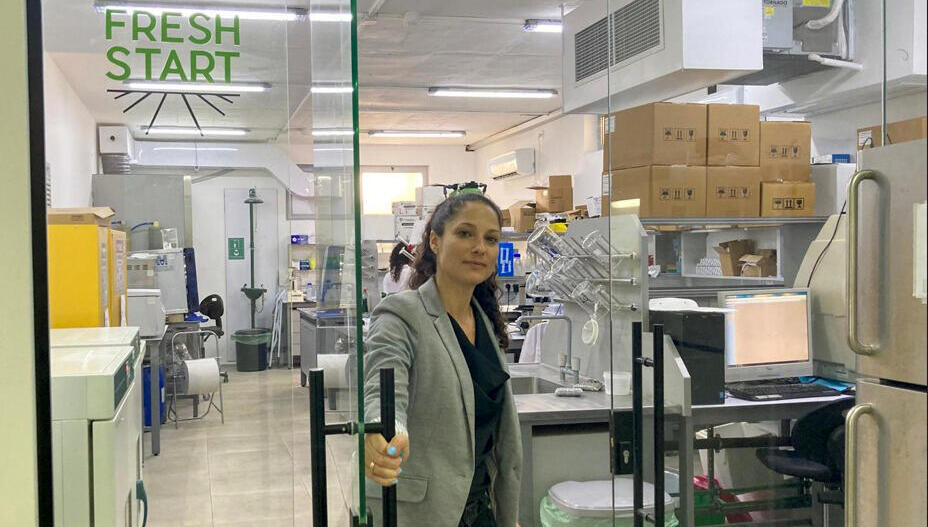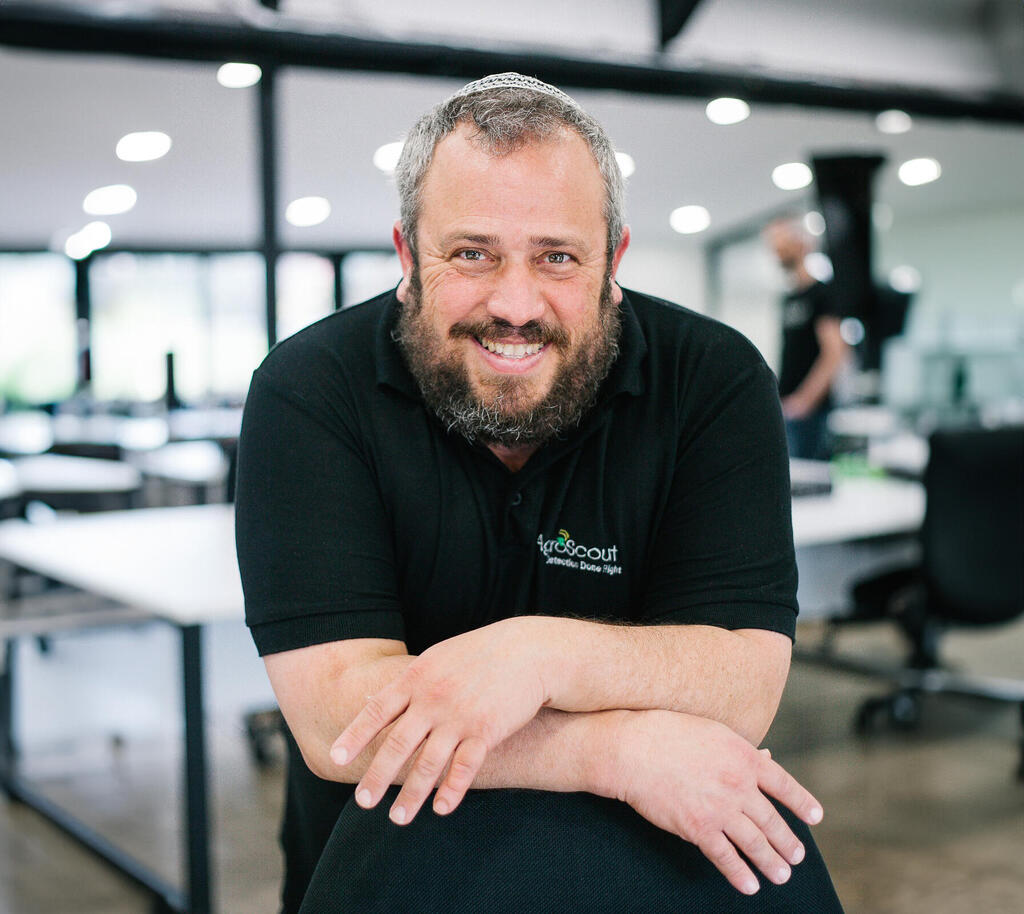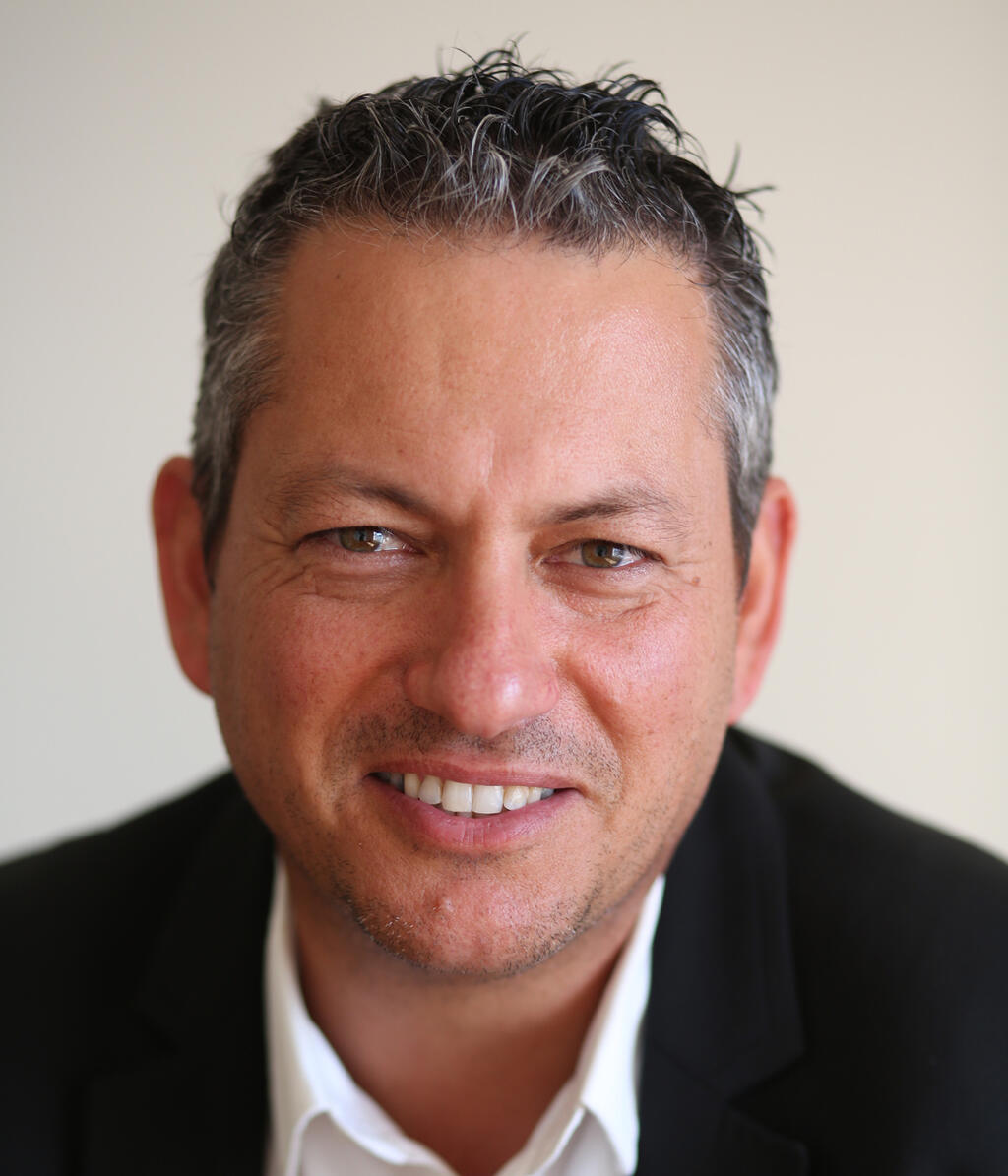
Startups on the frontline: War displaces founders and employees, yet work continues
Amid the uncertainty of war and evacuation, early-stage Israeli startups navigated the challenges of remote work, temporary offices, and the pressures of keeping business alive with limited resources and scattered teams.
For early-stage startups, employees and infrastructure are everything. On October 7, 2023, as the war in the south began and soon spread to the north, companies in the north were forced to evacuate their offices. Employees either self-evacuated or were relocated to various parts of the country, all while depending on investor funds - some from abroad - to survive.
Three CEOs of companies spoke to Calcalist about their experiences this past year including moving to alternative offices, wandering across the country, being displaced from their homes, and yet continuing to manage their businesses as usual amid these personal and national crises, when nothing was usual and they didn’t know if or when they would return home.
"In startups with three to five employees, the core [of the company] is R&D," says Noga Sela Shalev, CEO of the Fresh Start food tech incubator, which was evacuated from Kiryat Shmona. "One day, the ground was pulled out from under them: their labs were taken away all at once, meaning they had to find a new place to work, and the employees - who are everything to early stage companies - were scattered across the country. The evacuation from Kiryat Shmona wasn’t very organized, so the companies had to find a new place that would meet their development needs and also take into account the location of their employees who were scattered everywhere as quickly as possible, in order to maintain business continuity. You can just imagine the scale of this challenge during a war and the trauma of October 7."
It took the companies in the incubator about three months to find a new place to operate from, collect their equipment and gather employees. "All this happened in companies with relatively modest funding, and every day that passed in terms of the rate at which they 'burned' through investment funds was a major drama," she says.
The move also required significant financial planning, as it involved a large, unplanned expense that could be critical for a young startup. "We heavily subsidized the lab infrastructure, equipment, and everything in the incubator. Therefore, the move was a very large expense. Fortunately, the Israeli Innovation Authority stepped in to help, and our partners also chipped in, so all the companies were able to continue operating after the evacuation."
Simcha Shore, CEO and Founder of AgroScout, which develops drone software using AI and cloud services to replace an agronomist, identify pests, and inform the farmer about how much spraying and water the plants need, lives in Eshhar, a village near Karmiel. The company's offices are in the historic barn of Kibbutz Yir’on, 700 meters from the Lebanese border. The kibbutz, and several company employees, have been evacuated for a year, so the company has been hosted for many months at the Trendlines incubator near Karmiel.
"In the beginning, many of the company's employees were evacuated or on reserve duty, including me and many of the management team. Some were both evacuated and in reserves simultaneously. This made it very difficult to maintain regular operations and company growth. Since we're a software-based AgTech company, operating globally, we tried to keep functioning with the local team, supported by the international team," says Shore.
"Until recently, we were working only from home. About two months ago, we moved to temporary offices near Karmiel, but with the expansion of the war in the north and the worsening Home Front Command guidelines, we returned to working from home." In addition to the shift to working from home, the evacuation also forced the company to reduce its activities due to a shortage of manpower.
Sela Shalev says a manpower shortage is a common challenge for companies in the incubator. "There are companies in the incubator whose CEOs were called up for reserves on the second day of the war. There's a company where the CEO had been in the role for just a month before being called up on October 7. The challenge was how to keep a company running when all the employees were evacuated from their homes, the CEO wasn't present, and suddenly they had to move to a new location and work remotely. The partners, other entrepreneurs in the company, even those not involved in the day-to-day, had to step up to handle this. Junior employees suddenly had a lot of responsibility to keep the company running and working. One company, Bountica, moved between three different labs, and each move was a huge challenge because they had to relocate all of their development activities."
A company called Plantopia, a graduate of Fresh Start, moved from their labs in Kiryat Shmona to labs in Kibbutz Kfar Szold. After hiring new employees, they had to move again to a lab in Caesarea, which required major renovations and significant investment. "This company also has international investors who, despite their empathy, want to see that their companies are continuing to work and meet their targets," she says.
Chaim Giron, CEO of Infinity Labs, is from Kibbutz Rosh Hanikra. "My house is 500 meters from the border. I'm married with five children, and on October 7, we realized we were at the start of hell. We drove to the Hadera area and then to Eilat for six months. I thought that we'd return after three months. I enrolled the kids in schools, I would fly for two or three days to our offices in Ramat Gan, sleep one or two nights in the center, and then return to Eilat," he says.
"The real upheaval came six months later, when we left Eilat. I felt out of sorts. I realized this could be a long-term situation and we had no bomb shelter. We packed up our belongings and fled to an apartment in Bat Yam, moving through five different houses during the summer holidays. It was a difficult time and eventually, due to pressure from the kids who missed their friends, school, and community, we decided to return to the north - until a UAV exploded 150 meters from my daughter near a playground. Eventually we moved to Atlit, south of Haifa, where we live now. We re-enrolled the kids in schools and started rebuilding our lives. Stability returned. In terms of Infinity, I don’t feel like a victim. In the end, our ability to work remotely enabled us to continue."
An anchor amid uncertainty
When there’s no home, no office, and no clear goals or targets providing certainty about returning to the north or the end of the war, CEOs had to continue leading and providing as much stability as possible. Sela Shalev describes the effort to maintain stability and continue functioning under ongoing pressure, with constant decisions needing to be made about the companies’ futures. "It was an unexpected exercise in how to deal with chaos and uncertainty, to be an anchor both for myself and for others, the person they turn to with questions and for solutions. It was challenging, but also strengthening in its own way."
She lives in Pardes Hanna, but before the war, Sela Shalev would spend half the week in Snir to be closer to the incubator. Since October 7, she and all the incubator’s employees have been working remotely, meeting once a week in the center of the country. "In many ways, it’s like returning to the days of the pandemic; suddenly there’s no office, no home, and you have to manage this whole operation remotely," she says.
Infinity Labs, managed by Giron, is a research and development company that runs a training program for university graduates entering tech. They have a center in the Ramat Gan area and another in the Matam Park in Haifa. "Before the war, I would travel two to three times a week to the offices and to clients. Work has become harder since the war began. The high-tech industry has been hit, and things are tougher. People need more support, for someone to listen," he says.
"In the end, our role is to provide security and solutions. While we don’t have evacuees on staff, we have employees in companies we work with as well as clients who have been displaced; wherever you go, there are evacuees. Now with reserve duty call-ups, people can’t attend training sessions. We even had a student who was killed in Gaza. These are new challenges we’ve never faced before."
Although companies became accustomed to remote work during the Covid-19 pandemic, the war has required a different kind of coping. "We try to be flexible and provide support to team members who have been displaced or are on reserve duty, with help from other team members who step in to fill their roles," says Shore. The challenge of displacement is very demanding. "It required all employees to pitch in and help. The expanded rocket fire in the past two weeks has pulled both our employees who were not evacuated and those who were back into the war in the north."
One year later
While Shore is certain that, as soon as possible, they will reopen their office in Yir’on, the process of returning the team is more complex and depends on whether they can return to their homes across the region.
For Giron, it’s clear he will return to Rosh Hanikra "provided there’s a shift in security perceptions. We need to feel it’s safe to return." But many employees who were evacuated from their homes have already established new lives elsewhere. "Some people, on a personal level, want to return home, so they are more likely to come back. But for companies, it’s not necessarily logical to return to the north. Such upheavals are very aggressive for young companies, so there would need to be a very strong incentive for them to make this journey again," says Sela Shalev.
She says that even amid widespread evacuations and heavy bombardment, with parts of the North declared a closed military zone, plans to return high-tech companies to the region on the day after are still underway. "The infrastructure there is partially dormant, and some of it is operating at lower intensity, but planning continues. This includes the regional authority, a collaboration of bodies and incubators that work together to ensure the agenda of this region as an AgTech and food tech hub remains in place. There’s significant fundraising and partnership-building underway so that, as soon as it’s possible, we can push a button and hit the ground running."
"We, as an incubator, are close to the area and want to return to operations there. As soon as it’s possible, we’ll return and bring in new companies, but bringing back the existing ones will be very challenging," she says.

















